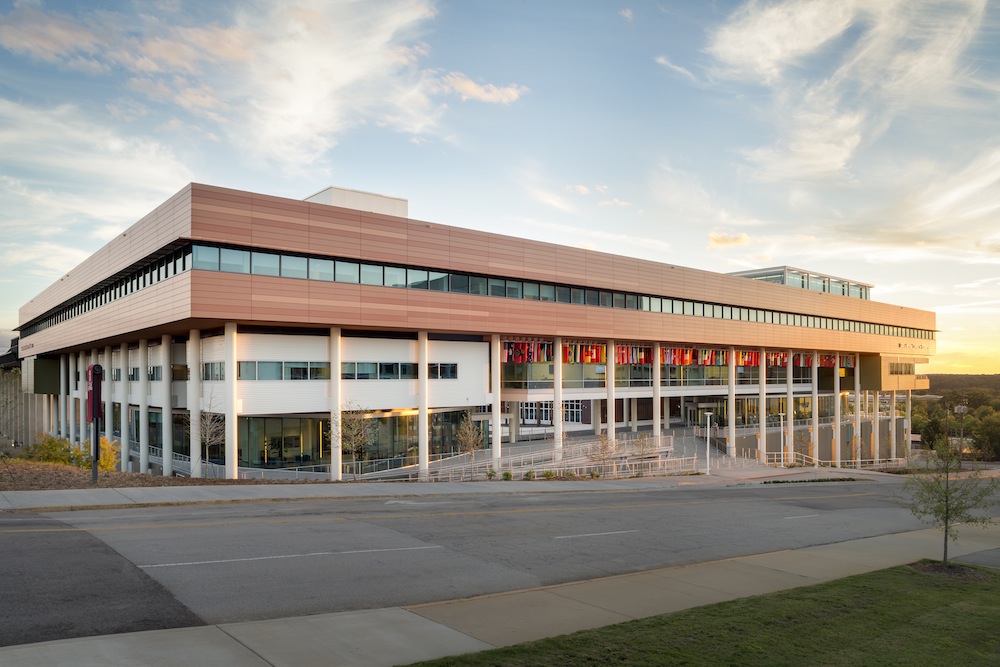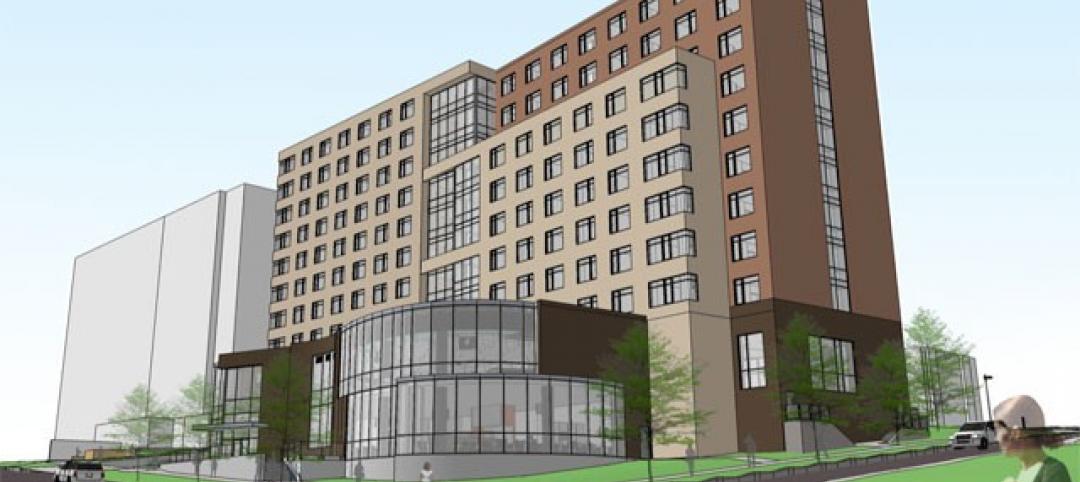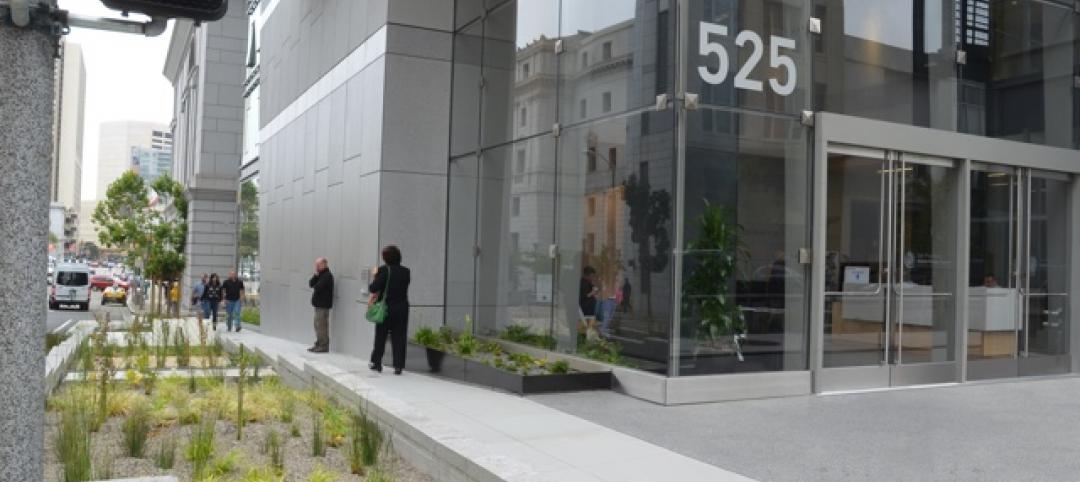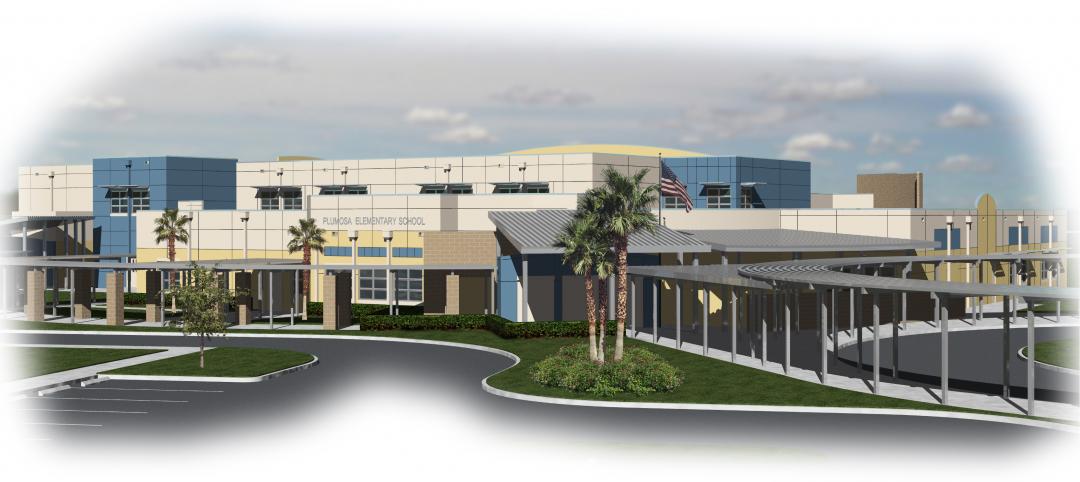Later this year, the newest building at the University of South Carolina’s Darla School of Business expects to achieve LEED Platinum certification from the U.S. Green Building Council.
The 260,000-sf building, which opened in August 2014, is on a path to be recognized as the first net-zero energy higher education facility of its kind in the southeastern U.S.
The university was chosen by the U.S. Department of Energy to partner with Lawrence Berkeley National Laboratory as part of DOE’s Net-Zero Energy Commercial Building Initiative, whose goal is to provide marketable net-zero energy commercial buildings by 2025.
Rafael Viñoly Architects was the architect of record on this $108 million project, and Atlanta-based Stevens & Wilkinson provided the engineering design via its Columbia, S.C., office.
The building’s efficiency features include:
• HVAC systems with under-floor air, active chilled beams, and variable air volumes, all designed to reduce the energy needed to heat and cool the building. A separate HVAC system serves the school’s 500-seat lecture and performance hall. Stevens & Wilkinson also worked with an acoustics consultant, which lead the firm to increase duct sizes for a quieter environment.
• Sustainability is achieved through the use of green turf for heat reduction, reusable waste management systems, and natural daylighting. Rainwater is harvested for irrigation and toilet use, which should the building’s overall water usage by more than 50%.
• Electrical equipment on each of the building’s six levels is charged by two vertical power feeders connected to the building’s main switchgear. An emergency power system services life-safety loads and emergency equipment in the event of power outages.
• An energy monitoring system measures power used by such equipment and components as interior and exterior lighting, heating and cooling, fan motors, elevators, kitchen equipment, and building-plug loads. “Given our region’s hot, and at times, humid climate, our team’s efforts will help curb the amount of energy needed to effectively heat and cool a building of this size and magnitude.” said Keith Branham, PE, LEED AP, Senior Vice President, Director of Engineering for Stevens & Wilkinson.
The net result has produced an optimized energy performance of 43%, which exceeds ASHRAE’s 90.1 standard for these kinds of buildings. The school was made more flexible by incorporating entries on multiple levels. And civil engineering design ensures proper storm water management for flood prevention, site utilities, and government agency approvals.
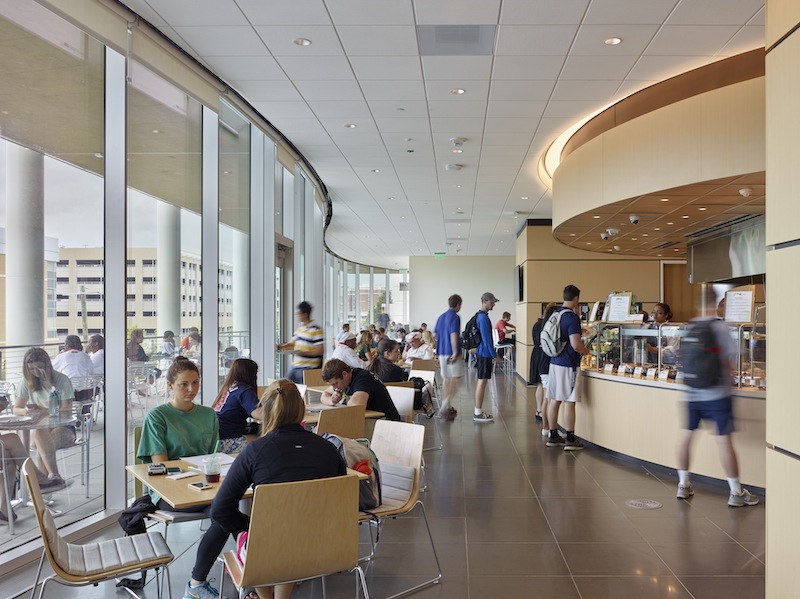
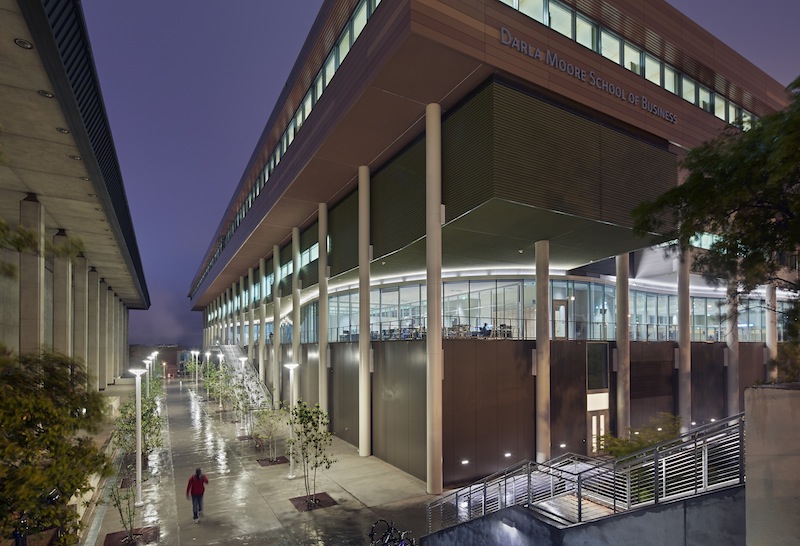
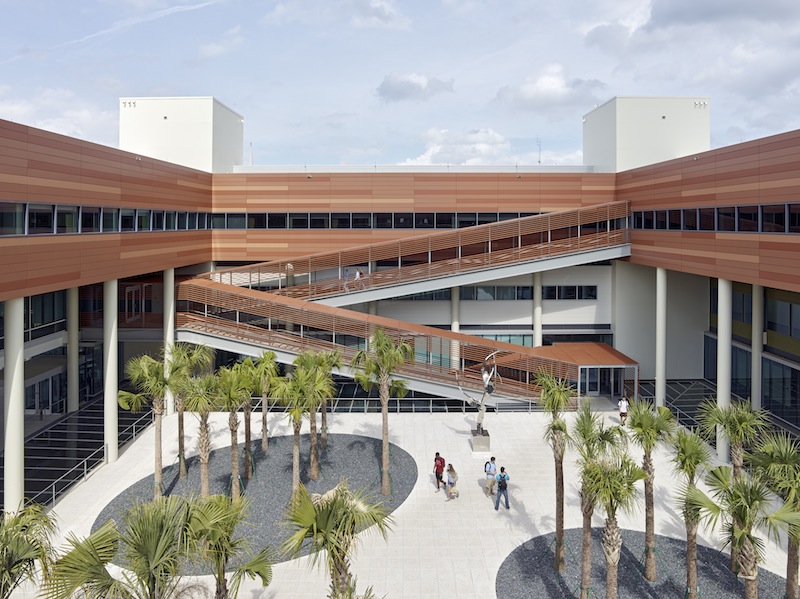
Related Stories
| Nov 14, 2012
U.S. Green Building Council announces grant from Google to catalyze transformation of building materials industry and indoor health
Focus is on healthy building materials to promote indoor environmental quality and human health
| Nov 14, 2012
USGBC's Greenbuild International Conference and Expo kicks off in San Francisco
7,000 members of the green building industry convene for opening plenary headlined by "Morning Joe" co-hosts Mika Brzezinksi and Joe Scarborough
| Nov 13, 2012
Have colleges + universities gone too far with "Quality of Life" buildings?
We'd like your input - recent projects, photo/s, renderings, and expert insight - on an important article we're working on for our Jan 2013 issue
| Nov 13, 2012
Turner Construction’s green building Market Barometer reveals new findings on green building and certification
Respondents indicated a widespread commitment to sustainable practices
| Sep 7, 2012
7 Do's and Don'ts for PV roof rack installation
As PVs grow in popularity, nearly half of all installations require roof rack systems. Our expert tells how to do the job right and protect your client’s roof.
| Jul 2, 2012
San Francisco lays claim to the greenest building in North America
The 13-floor building can hold around 900 people, but consumes 60% less water and 32% less energy than most buildings of its kind.
| Jul 2, 2012
Plumosa School of the Arts earns LEED Gold
Education project dedicated to teaching sustainability in the classroom.
| Jun 28, 2012
Federal applications of renewable energy
U.S. Army Fort Knox: Using the Earth for space heating and cooling. The U.S. Department of Energy’s (DOE) Federal Energy Management Program (FEMP) facilitates the Federal Government’s implementation of sound, cost-effective energy management and investment practices to enhance the nation’s energy security and environmental stewardship.
| Jun 25, 2012
Living green wall planned for InterContinental Chicago
Project, with price tag of $2 million to $3 million, needs council approval.


